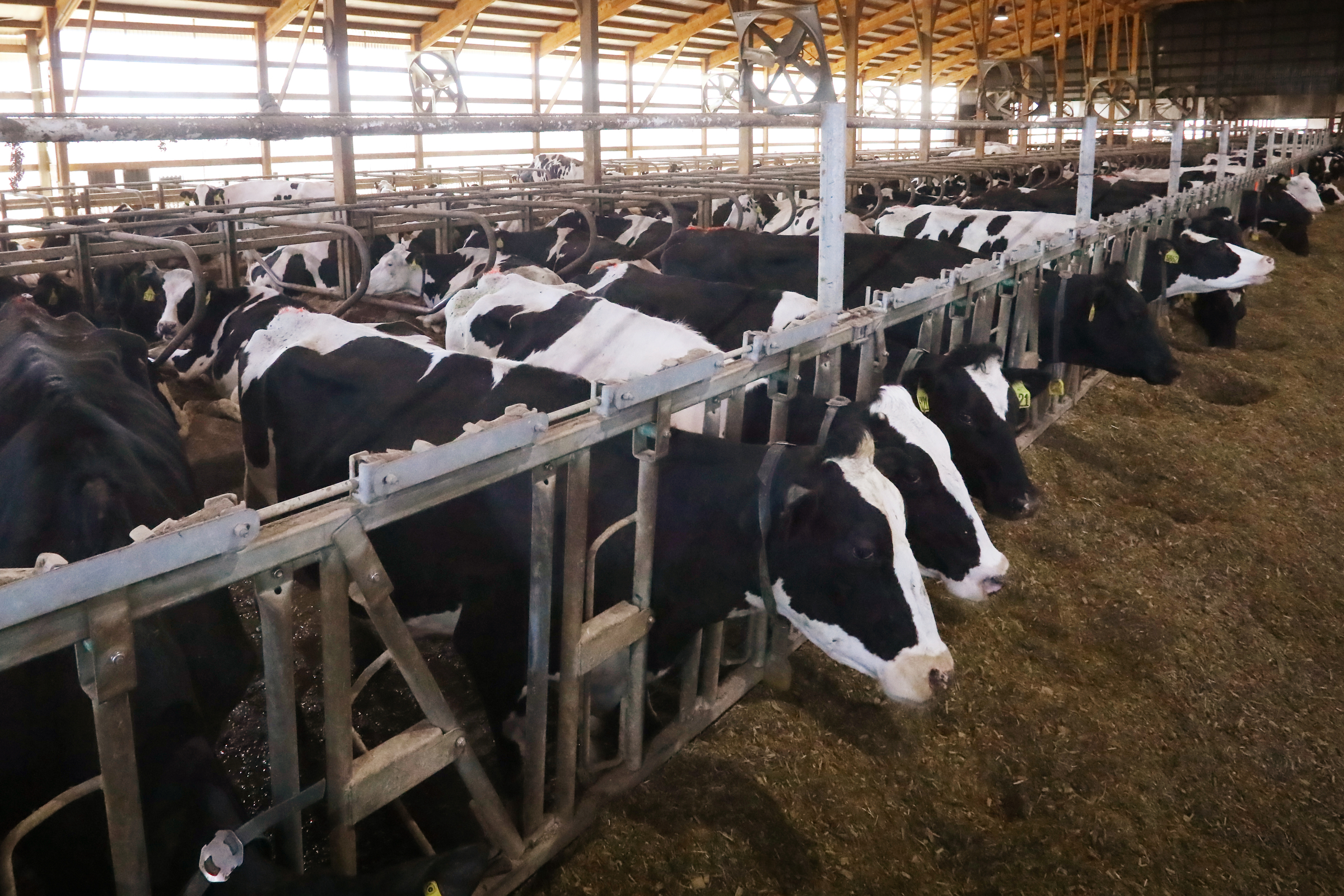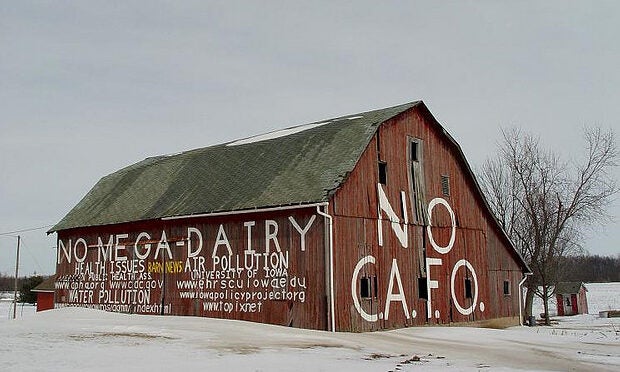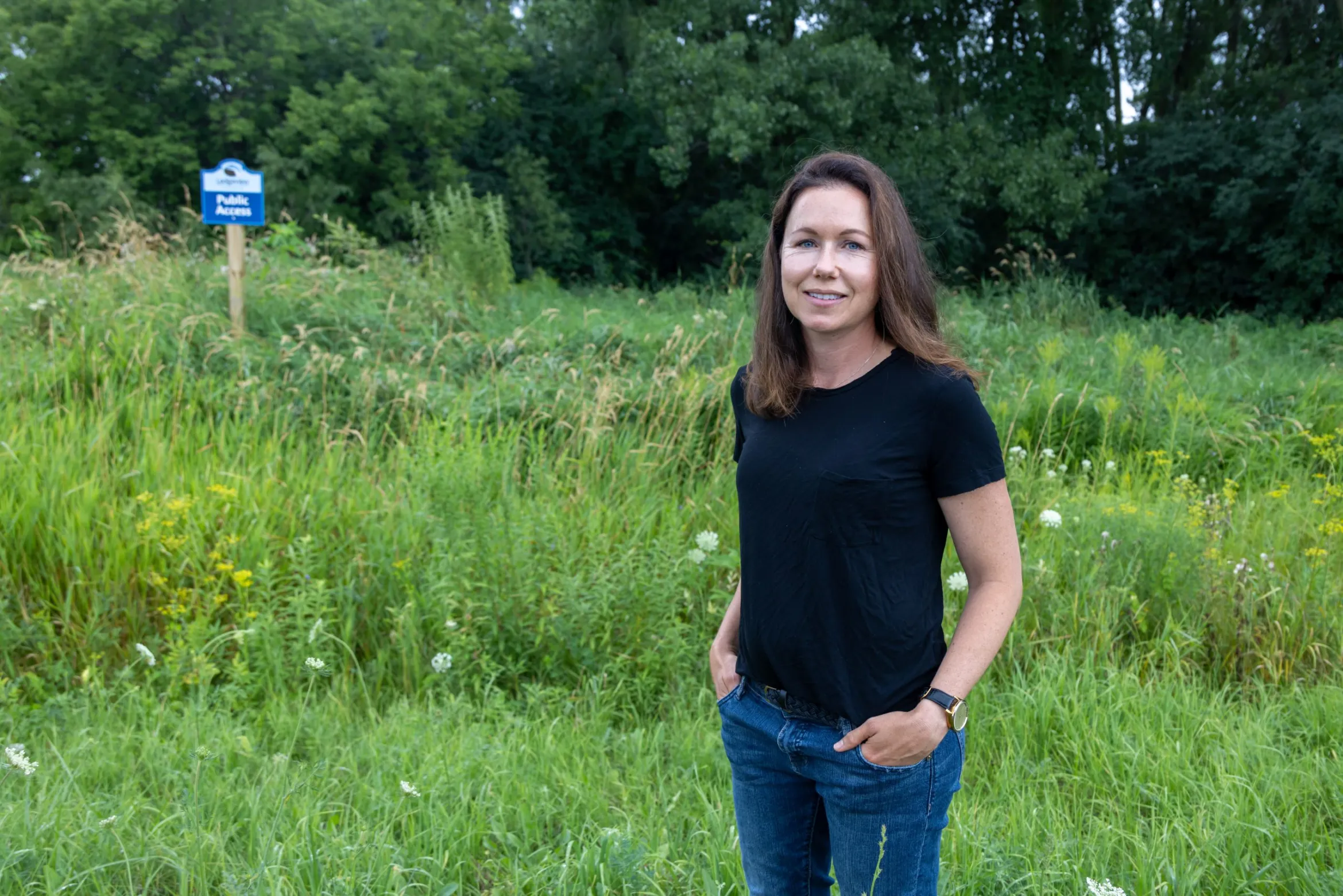The Wisconsin Department of Agriculture, Trade and Consumer Protection is launching the latest review of standards used to regulate siting and expansion of large livestock farms.
A committee met for the first time Thursday as part of the review, which was broadcast on Wisconsin Eye. Every four years, the agency must convene a group of experts to provide technical input on the standards used in the state’s livestock siting law, which was first enacted in 2006.
The law set technical standards for siting and expansion of livestock facilities that include setbacks, odor and air emissions, nutrient and runoff management and manure storage. The agency must review its rule that sets those standards, and that rule must be protective of public health, cost-effective and promote the growth or viability of livestock farms.
Stay informed on the latest news
Sign up for WPR’s email newsletter.
Local governments must follow the standards if they decide to adopt an ordinance and require permits for siting and expansion of livestock farms with roughly 500 animals or more except in limited cases. The law is intended to provide uniform regulation, according to Tim Jackson, the agency’s livestock facility siting program manager. The state has conducted three such reviews since the law was enacted in 2010, 2014 and 2018.
“The reviews from these past technical expert committees have not made it to adoption into the rule,” Jackson said. “We are very glad to have you folks here this time around and have some good productive discussions and hopefully get some changes into the rule if it’s determined some are necessary this time around.”
The state’s last review under former Agriculture Secretary Brad Pfaff resulted in proposed changes that sparked a wave of opposition from farm groups, claiming they would damage farmers and force some out of business.
Those changes were geared toward giving local governments more say in the process. One change would have allowed communities to enforce larger setbacks from neighboring properties based on the kind of livestock, size of the facility and manure storage. The suggested revisions also would have created new requirements for odor and runoff management.
GOP lawmakers also raised concerns with the proposed updates under Pfaff, who eventually withdrew the revisions in November 2019. Just days later, the Republican-controlled state Senate fired him. It marked the first time a member of the governor’s cabinet hadn’t been confirmed since at least 1987. In the months following Pfaff’s firing, Republican lawmakers introduced a bill in February 2020 that would have given farm groups more power to regulate siting and expansion of livestock facilities. The bill didn’t advance in the Legislature.
At least 134 local governments that have passed ordinances to regulate livestock siting and expansion. The state currently has around 200 active livestock facility siting permits.
Committee member AV Roth, owner of Roth Feeder Pig, operates a farm of 2,900 sows and received approval from the state this year to build a second facility that would house more than 8,100 swine. Roth said he went through livestock siting as part of the expansion. He supports the process to review the standards and examine how livestock siting and expansion is approached elsewhere in the country, as well as other regulations that may correspond with it.
“I would like to see more of the state involved in livestock siting,” Roth said. “I’m a little disappointed that not more counties or things are enrolled in livestock siting.”
Some local governments, including Bayfield and Polk counties, have sought more local control over regulating large farms known as concentrated animal feeding operations or CAFOS. Adam Voskuil, staff attorney for Midwest Environmental Advocates, said they hope the committee’s work will lead to the development of a rule that addresses recommendations from prior reviews. Those reviews suggested updates to setback requirements, waste storage, odor and runoff management.
“We’re hoping to see things that address issues related to odor and air quality, just to name a couple,” Voskuil said. “We’re hopeful that what comes out of this committee review will start to address those concerns.”
Voskuil said concerns about local control have grown as CAFOs have expanded statewide with 331 CAFOs operating in Wisconsin.
In a statement, the Dairy Business Association said it will engage in the process over the coming months with other ag groups to offer insights from farmers on the standards.
“At this point, there are still a lot of unknowns about the direction it will head. From our perspective, any updates must be science-based, economically reasonable and continue to move Wisconsin dairy forward toward our goal of clean water and resilient farms,” the group wrote.
The agency will hold meetings throughout the first half of next year on each standard. The committee will compile a report of any recommendations for changes that will be reviewed and approved at its last meeting in May.
Wisconsin Public Radio, © Copyright 2025, Board of Regents of the University of Wisconsin System and Wisconsin Educational Communications Board.



